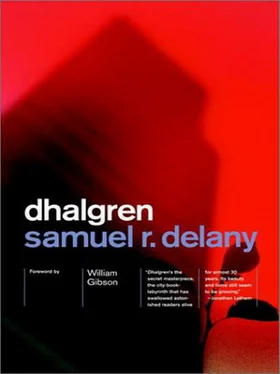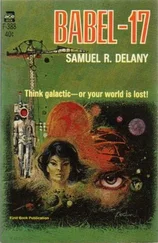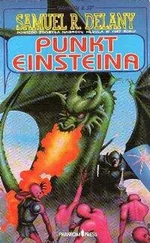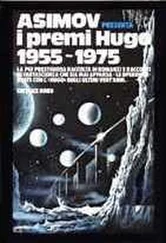Dhalgren
by Samuel R Delany
This book about many things
must be for many people.
Some of them are
Joseph Cox, Bill Brodecky, David
Hartwell, Liz Landry, Joseph
Manfredini, Patrick Muir, John
Herbert McDowell, Jean Sullivan
Janis Schmidt, Charles Naylor, Ann
O'Neil, Baird Searles, Martin Last,
Bob & Joan Thurston, Richard Vriali,
& Susan Schweersand
and
Judy Ratner & Oliver Shankalso
also
Thomas M. Disch, Judith Merrell,
Michael Perkins, Joanna Russ, Judith Johnson, & Marilyn Hacker
"You have confused the true and the real."
— GEORGE STANLEY/In Conversation
The Recombinant City
by William Gibson
A Foreward
Samuel Delany's Dhalgren is a prose-city, a labyrinth, a vast construct the reader learns to enter by any one of a multiplicity of doors. Once established in memory, it comes to have the feel of a climate, a season. It turns there, on the mind's horizon, exerting its own peculiar gravity, a tidal force urging the reader's re-entry. It is a literary singularity. It is a work of sustained conceptual daring, executed by the most remarkable prose stylist to have emerged from the culture of American science fiction.
I have never understood it. I have sometimes felt that I partially understood it, or that I was nearing the verge of understanding it. This has never caused me the least discomfort, or interfered in any way with my pleasure in the text. If anything, the opposite is true.
Dhalgren is not there to be finally understood. I believe its "riddle" was never meant to be "solved". I do not believe that this has to do with any failure of coherence on the part of either the author or the text. I find both to be exceptionally coherent. Author and text are determinedly self-aware, in ways that less exploratory authors and their tales never are. Dhalgren is quite literally an experimental novel, and exploration of the cultural envelope of fiction. Delany, equipped with the accumulated tool-kit of literary modernism, heads straight for the edges and borders and unacknowledged treaties of the consensual act of fiction. And, most remarkably — almost uniquely, in my experience — he succeeds; the text becomes something else, something unprecedented.
To enter Dhalgren is to be progressively stripped of various certainties, many of these having to do with unspoken, often unrecognized, aspects of the reader's cultural contract with the author. There is a transgressive element at work here, a deliberate refusal to deliver certain "rewards" the reader may consider to be a reader's right. If this is a quest, the reader protests, then we must at least learn the object of that quest. If this is a mystery, we must at least be told the nature of the puzzle. And Dhalgren does not answer. But what of this recombinant city, the reader asks, this metamorphic Middle American streetscape, transfigured by some unspecified thing or process, where nothing remains quite as it was, and the sky itself is alight with primal signs of Tarotic portent?
And Dhalgren does not answer, but goes on.
Revolving. A sigil of brass and crystal, concrete and flesh.
I place Dhalgren in this history:
No one under age thirty-five today can remember the singularity that overtook America in the nineteen-sixties, and the generation that experienced it most directly seems largely to have opted for amnesia and denial.
But something did happen: a city came to be, in America. (And I imagine I use America here as shorthand for something else; perhaps for the industrialized nations of the American Century.) This city had no specific locale, and its internal geography was mainly fluid. Its inhabitants nonetheless knew, at any given instant, whether they were in the city or in America. The city was largely invisible to America. If America was about "home" and "work" the city was about neither, and that made the city very difficult for America to see. There may have been those who wished to enter that city, having glimpsed it in the distance, but who found themselves baffled, and turned back. Many others, myself included, rounded a corner one day and found it spread before them, a territory of inexpressible possibilities, a place remembered from no dream at all. We would find that there were rules there as well, but they would be different rules. Down one half-familiar street, and then another, and perhaps we came to a park…
It proved to be possible to die in the city, and no book was ever kept of the names of those dead. Many survived there, but did not return. (Some said that those who did return had never quite been there.) But for those who remained, something else gradually happened: the membrane eroded, America and the city seeping into one another, until there is no America and there is no city, only something born from their intermingling.
I would not suggest that Dhalgren is any sort of map of that city, intentional or otherwise, but that they bear some undeniable relationship. (Those who would prefer to forget the city say that it produced no true literature, but that too is denial.)
In Dhalgren, the unmediated experience of the singularity has survived, free of all corrosion of nostalgia.
When I think of Dhalgren, I remember this:
A night in DuPont Circle, Washington, D.C., amid conditions of civil riot, when someone, as the police arrived with their staves and plastic shields, tossed a Molotov cocktail up into the shallow stone bowl of the Admiral's memorial goblet. The District's lesser monuments were often in decay, and the Circle's tall fountain had stood dry for however many summers, and I suppose trash had accumulated there, mostly paper, crumpled Dixie cups tossed up by children making baskets in imaginary hoops.
I did not hear the bottle shatter, only the explosive intake of gasoline igniting, flames throwing black shadows against the concrete; our shadows, running. We were all running, and in the eyes of a Kennedy-jawed girl from the Virginia suburbs I would see something I had never seen before: a feral shiver, a bright wet shard of ancient light called Panic, where dread and ecstasy commingled utterly. And then the first cannisters fell, trailing gas, and she was off, running, like a deer and in that moment as beautiful. I ran after her, and lost her, and sometimes I imagine she is running still.
Several years later, settling into the long slough of the pre-punk seventies, when Dhalgren was first published, I remember being simply and frequently grateful to Delany for so powerfully confirming that certain states had ever been experienced at all, by anyone.
The flame-lit park already so far behind.
I distrust few things more deeply than acts of literary explication.
Here is a book. Go inside.
It's your turn now.
Circular ruin.
Hall of mirrors.
Ring of flesh.
The smoldering outskirts reconfiguring with each step you take.
Bellona.
Remember me to them.
Vancouver, B.C. August 23, 1995
to wound the autumnal city.
So howled out for the world to give him a name.
The in-dark answered with wind.
All you know I know: careening astronauts and bank clerks glancing at the clock before lunch; actresses scowling at light-ringed mirrors and freight elevator operators grinding a thumbful of grease on a steel handle; student riots; know that dark women in bodegas shook their heads last week because in six months prices have risen outlandishly; how coffee tastes after you've held it in your mouth, cold, a whole minute.
Читать дальше












